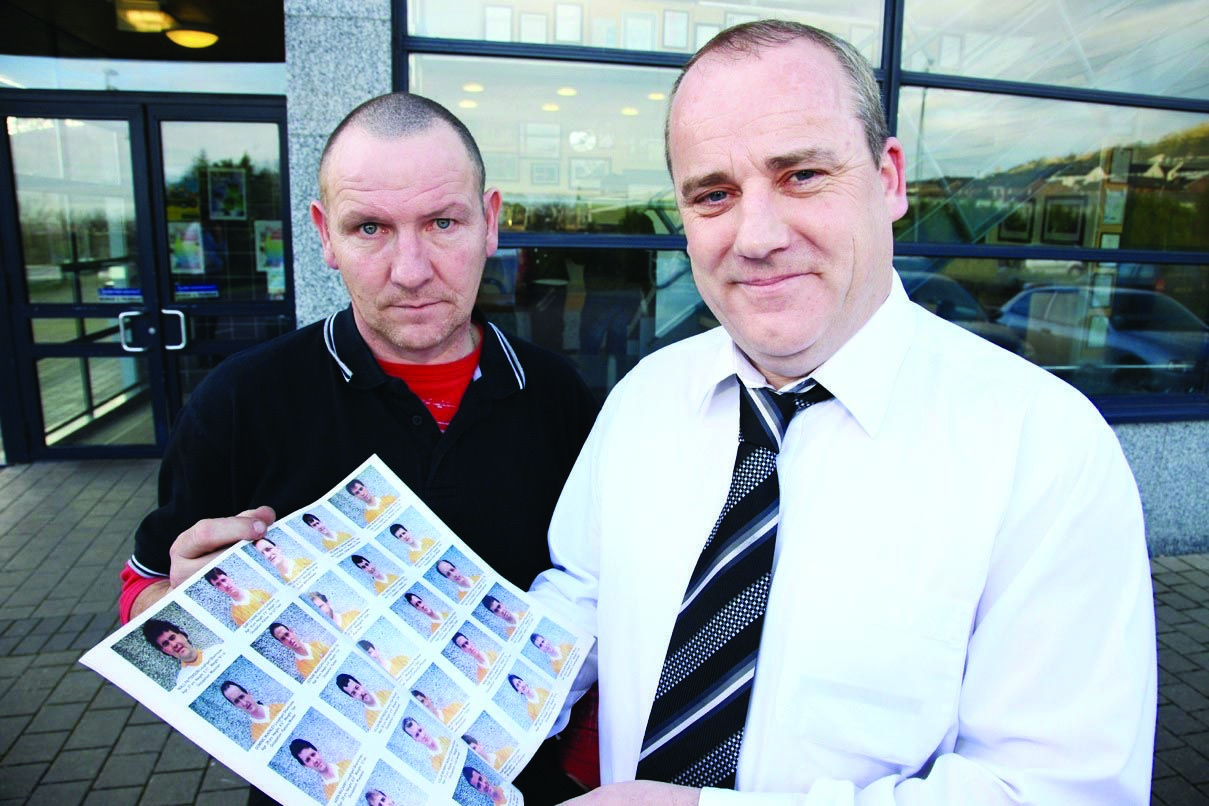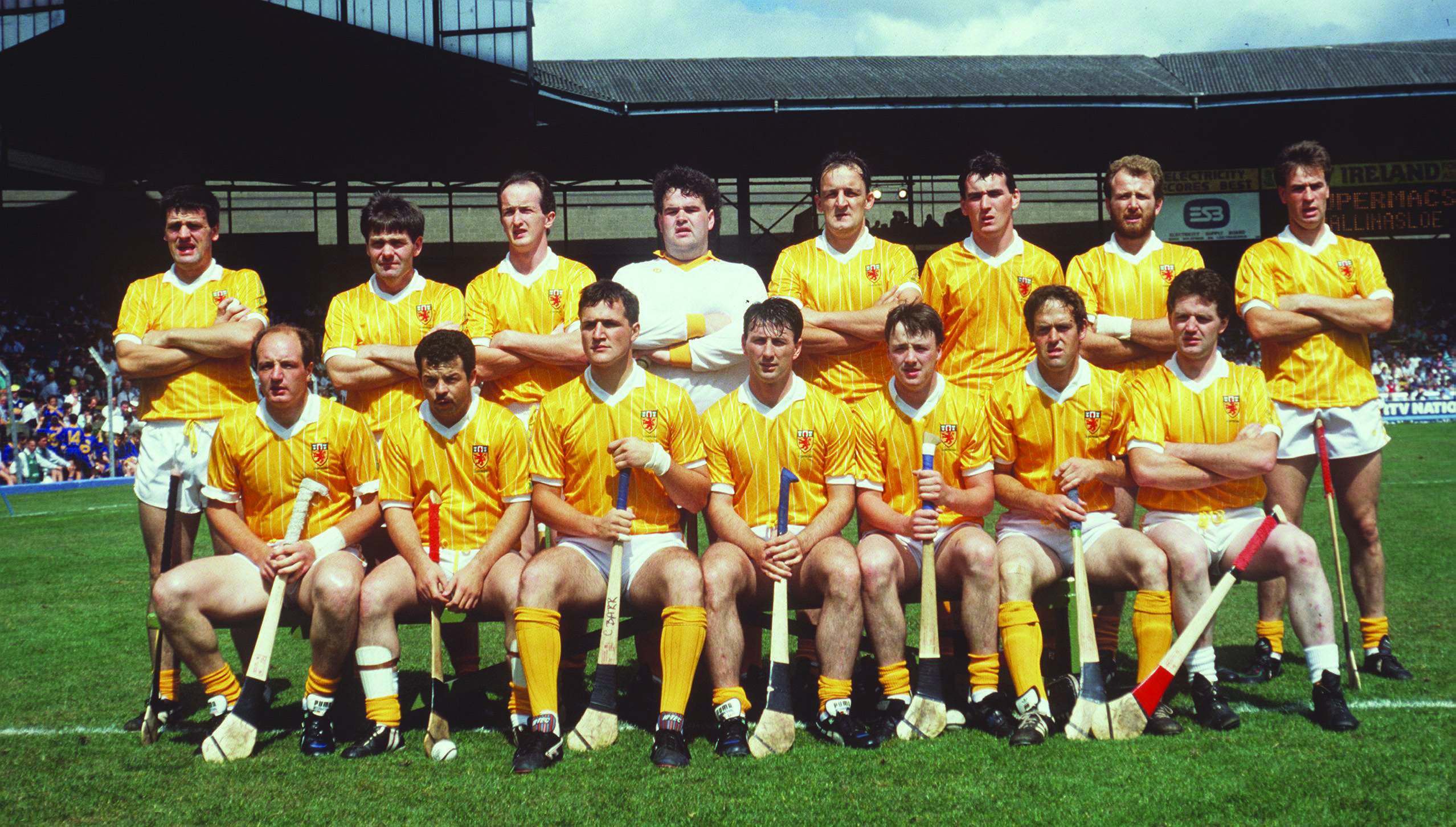In 2009, it was 20 years from Antrim’s last All-Ireland final appearance. Ciaran Barr, Gerard Holden and Paul McStravick chatted to David Mohan about the most memorable day for Antrim hurling in a generation...
BACK then it was all so different. Attendances at Antrim hurling matches were high, people thought nothing of boarding various supporters’ buses destined for the heartlands, and there was a real sense that, for the first time in a generation, Antrim could mix it with the big boys.
Now it seems the advent of satellite TV, with saturated coverage of any major or not so major sporting competition, has drained people’s affections for attending Antrim matches in huge numbers. But there was a time when the excitement and thrill of being an Antrim supporter reached a crescendo 20 summers ago. “In those days, playing for Antrim was a big thing.
There was more profile and bigger crowds. There were less distractions,” recalls Paul McStravick, St Paul’s chairman, but more importantly, sub goalkeeper on the Antrim All-Ireland Hurling final squad of 1989. Fellow panelist, Ger Holden of Gort na Móna agrees. “There was a big support back then, now it’s a joke. I was at the Antrim and Down game at Portaferry in the League and there wouldn’t have been 500. In our day you were getting thousands at the games.”
From the mid 1980s until the early 90s, Antrim were close, so close to making the ultimate breakthrough. A McCarthy Cup win looked like it may just happen, a first not only for Antrim, but for Ulster Hurling. Earlier that year, in the All-Ireland club final, Rossa lost to Wexford side Buffer’s Alley.
As county champions they were to provide the captain for the year, and Ciaran Barr, the county’s first Hurling All-Star in 1988, led the Saffrons for the year. However, it was only to be a first taste of All-Ireland heartache that year.
“I think the disappointment came after, because we didn’t make another final, especially after ’91,” said Barr. “Because it was the first final in a long time for the county, the event became the big thing and not winning the game. I think in hindsight, that if the players could have detached themselves from the hype, we could have done a bit better.
1989 All Ireland Senior Hurling Final; Antrim v. Tipperary pic.twitter.com/xkTDHx01Cq
— GAA Programmes (@ProgrammesGaa) November 22, 2022
“Would we have won? I doubt it. To be honest, Tipperary were a very good team and in ’91 we were unlucky not to have got there, and I think we would have won if we had.” While just two of the starting 15 against Tipperary came from Belfast, both Rossa men in Barr and Donal Armstrong, it was coached by St Pauls’ Jim Nelson.
According to Barr, Nelson deserves great credit in how he managed to mould so many different groups into one functioning unit. “Jim Nelson did a massive job in getting us together because it was a very diverse group of people.
There were different generations and characters, and especially in the Glens, the villages are all very different places,” said Barr. “With Belfast it was a bit easier because the differences are not easy to spot, but with the Glens guys, it was a much tougher job, and Nelson did very well at that.”
Having switched to Dublin club St Vincent’s, and then onto the Metropolitans due to work commitments in 1993, Barr spent the in-between years working in England and France, before returning to Dublin three years ago.
Barr, born to a Markets father, and a mother from Inchicore in Dublin, took the reins of the Dublin U21 hurlers this year, although he insists that this season's Leinster Championship clash between Antrim and Dublin at senior level will be a case of dual rather than split loyalties.
Players Ger Holden and Paul McStravick look through a commemorative magazine from the time at the Belfast Media Group offices
Reflecting on the All-Ireland final itself, Barr remembers being surprised with hearing familiar voices from the sell-out crowd. “The funny thing I remember is that I could hear individual voices during the match itself, which I wasn’t expecting,” said Barr.
“I could hear Belfast voices and Glens voices, and although I was expecting a certain buzz from the crowd, I didn’t think that would happen and it’s something that still makes me laugh.”
Ger Holden also recalls the intense media build-up as something alien to the players, although looks back at leaving Casement on the Saturday morning as the stand-out memory of the experience. “The three weeks after the semi, the media attention was mad, everyone was asking for interviews. Even the trip from the hotel in Malahide to Croke, the place was wild.
“We had four Gardai motorbikes behind our bus and four in front. We stopped at every bit of traffic along the way and could see faces we knew, especially around Jones' Road.
The Antrim bench celebrate their win over Offaly in the 1989 All-Ireland Hurling Semi-Final. '@AontroimGAA @gaanostalgia pic.twitter.com/9aDh0SWr4k
— Classic GAA Pics and Vids (@GAARetroPics) August 30, 2018
“Maybe more experienced boys of this world, like the Tipp team, would have taken all that on board, knowing how to handle the two hours before the game, having lost the final the year before.
“They say you have to lose one to win one, well we lost in ’43, and again in ’89 so I look forward to our next final in 2026,” he joked. While the final itself was a disappointment, a league defeat to Tipperary in Casement Park a month later provided Paul McStravick with an abiding memory, that Antrim had made it into the big time.
The huge crowd that day to see the Saffrons go down by a point to the champions is something that will always remain, and a late penalty by Aiden McCarry, put over rather than under the bar almost granted Antrim some degree of revenge for the September reverse.
However, returning to Casement Park by horse and cart on the Monday night after the All-Ireland final, to be greeted there by a huge crowd of around 9,000 fans, followed by a tour of the Glens of Antrim is something special that was sadly never to be repeated. While promises were made to return with an extra guest called Liam, a return to the showpiece never materialised, despite going very close in '91.
But according to McStravick, the fact it was a one-off is perhaps what made it all so special. “I suppose it’s so memorable because it only happened the once,” said McStravick. “But at least it did happen, so the memories aren’t too bad now.”



